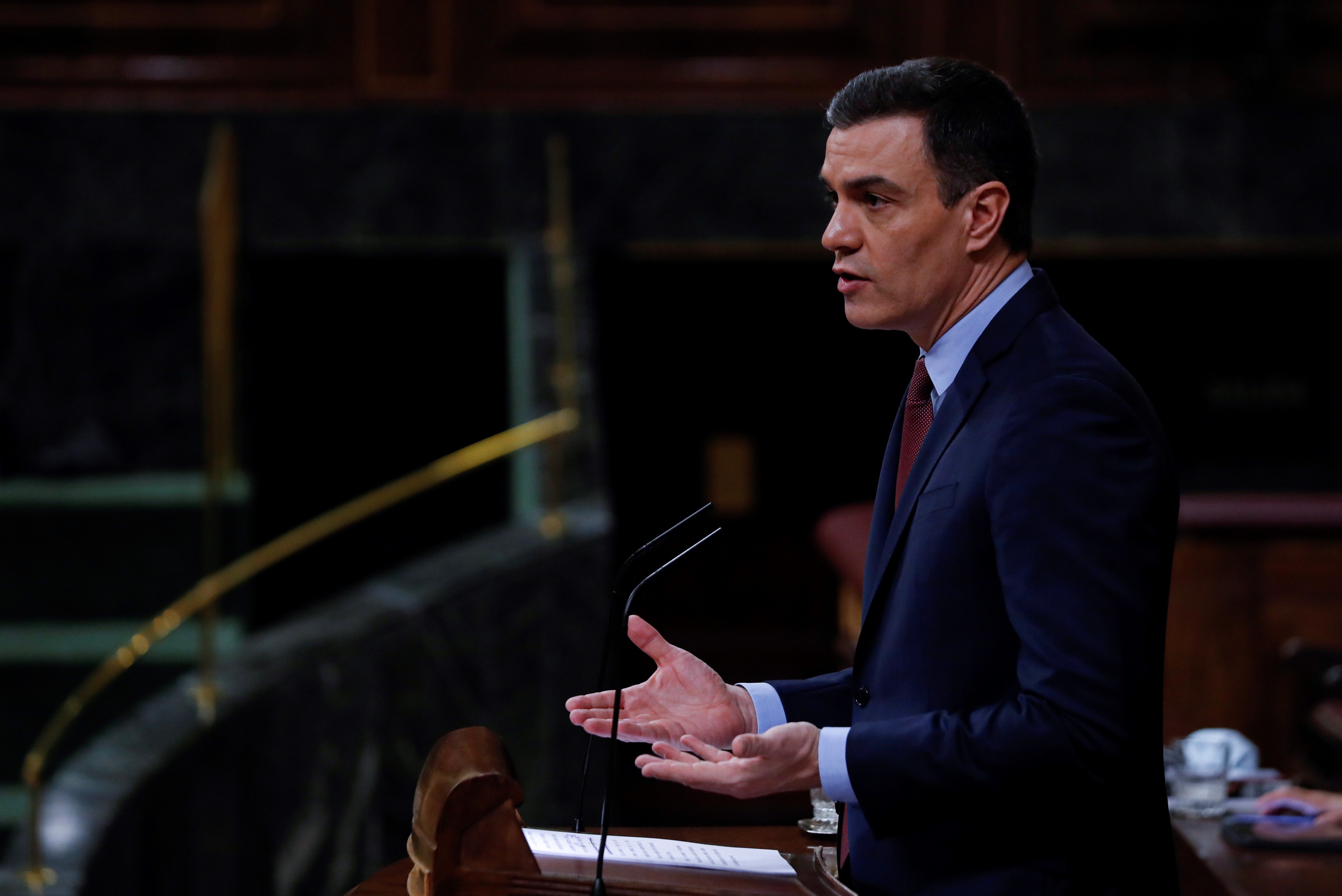Spanish PM Pedro Sánchez is considering the possibility of requesting an extension of the country's current emergency status, the state of alarm, for a duration of a month, instead of the two-week prolongations he has asked for up till now. As confirmed to ElNacional.cat by various sources close to the talks, deputy prime minister Carmen Calvo has maintained contacts over the last few days with the different parliamentary groups to sound out this proposal with them. In exchange for this longer extension - it will be the fifth request for extra time - the executive is willing to listen to proposals and make significant changes in its crisis management, much criticized in particular for the single, centralised command imposed by the the state. The state of alarm would be extended in parallel with the current four phase de-escalation process, envisaged as running until the end of June. The Catalan pro-independence parties have been contacted by Calvo and will send their responses.
As confirmed by the deputy PM's team, Calvo herself has, this Tuesday, held a round of contacts with all the political groups, by direct order of Pedro Sánchez. The goal is to assure the necessary votes for an extension in exchange for making the state of alarm more flexible and adaptable to different demands. At the moment, in the current terms, Sanchez does not have the votes to pass an extension next week in Congress.
To try to win back the support that has been lost, such as that from the largest Catalan pro-independence parties ERC and JxCat, Carmen Calvo has invited the groups to send proposals to be studied for possible changes to the decree. The independence parties were contacted yesterday evening and promised a "limited and flexible de-escalation", according to parliamentary sources. In recent weeks they have called for the return of the powers which constitutionally belong to the autonomous communities but which have been re-centralised under the state of alarm.
JxCat spokesperson Laura Borràs explained that Pedro Sánchez had told her directly to explore a different state of alarm and that deputy PM Calvo would call her. "And so it was. JxCat's proposal has always been for the return of powers to the Catalan government," she said.
Dimecres passat després del ple Pedro Sánchez em va dir que ja que li repetia tant “un altre estat d’alarma és possible”, ho exploréssim. Que em trucaria la VP Calvo.I així va ser. La proposta de @JuntsXCat ha passat sempre pel retorn de competències a la Generalitat de Catalunya pic.twitter.com/ZmReswBhst
— Laura Borràs 🎗 (@LauraBorras) May 12, 2020
Translation:
"Last Wednesday, after the parliamentary session, Pedro Sánchez told me that as I was repeating so much that "another state of alarm is possible", we would explore it. That deputy PM Calvo would call me. And so it was. The proposal of @JuntsXCat has always been for the return of powers to the Generalitat de Catalunya."— Laura Borràs
"Essential"
This Tuesday, Spanish government spokesperson María Jesús Montero took it as read that next week the executive will ask for a further extension of the state of alarm, and she trusted "the common sense of the political parties present". The Socialist minister emphasized that this was a "constitutional" mechanism and that there is an "international consensus" on applying it for the de-escalation. "As long as the public have restricted mobility, a state of alarm is essential," she said. And for that reason she criticised the PP: its no to the state of alarm is not understood "unless one is at the antipodes of collective well-being".
So far, the numbers for next week's votes are far from assured. Today the Spanish PM met again with Inés Arrimadas of Ciudadanos, who does not rule out any scenario. But that is not the case with the Basque Nationalists, who say it "makes no sense" to continue to extend the single command for the management of the coronavirus crisis. In the middle, ERC has declared itself willing to negotiate as long as its requests are met, starting with the return of Catalan powers.

